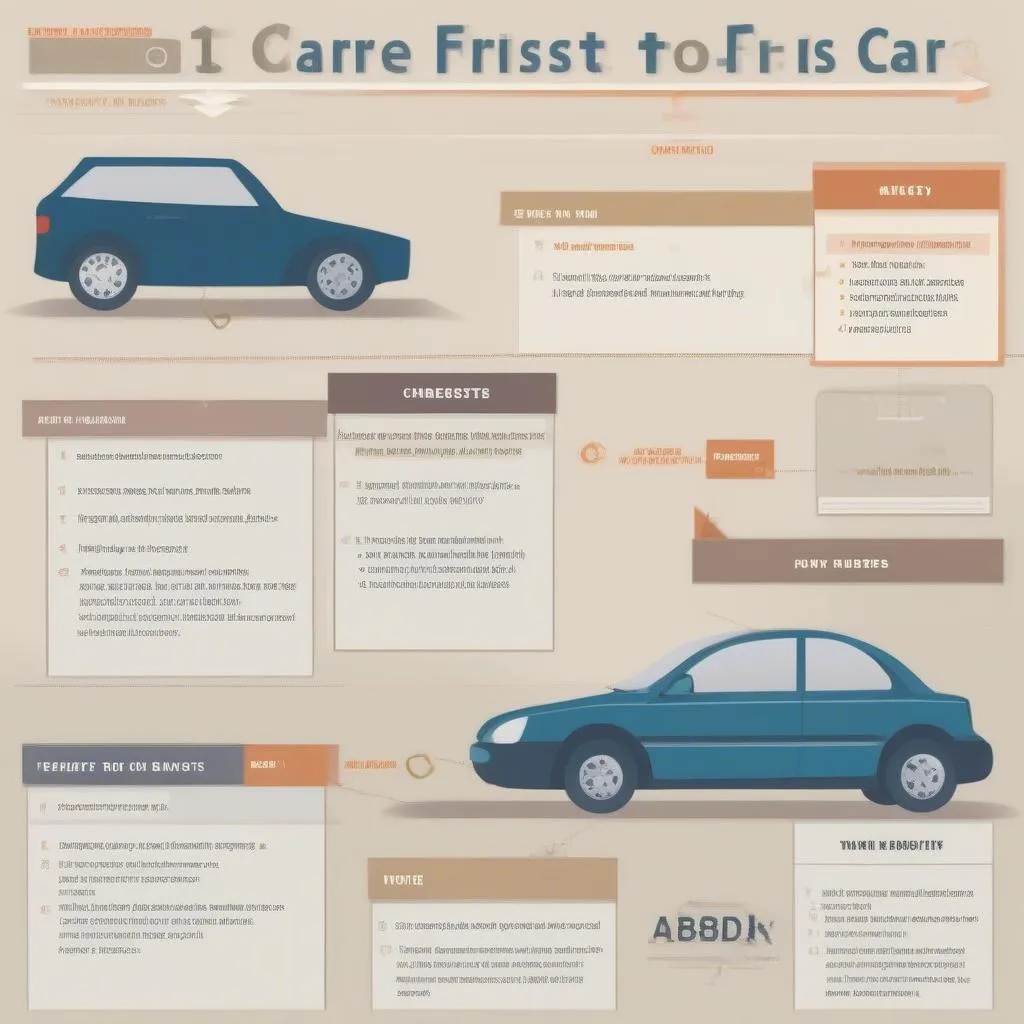Remember the thrill of getting your driver’s license? That feeling of freedom, the open road ahead, and the chance to finally explore the world on your own terms? It’s an experience that sticks with you forever, and a part of that magic lies in choosing your first car. But with so many options out there, how do you navigate the world of used cars and find the perfect first ride?
The Importance of Choosing the Right First Car
This isn’t just about getting from point A to point B; it’s about starting your journey into the world of car ownership. The right first car can be a reliable companion, a symbol of your newfound independence, and even a gateway to your future passion for cars.
From a mechanic’s perspective, a first car should be reliable and affordable to maintain. It doesn’t have to be fancy or luxurious, but it needs to be safe, efficient, and capable of handling everyday driving.
From a technical standpoint, a first car should be straightforward to understand. This means looking for cars with simple engines and basic features. Complex electronic systems can be daunting for a new driver and costly to repair.
From an economic standpoint, a first car should be within your budget, both in terms of purchase price and ongoing maintenance. It’s crucial to consider fuel efficiency, insurance costs, and potential repairs to make sure it fits into your financial plan.
Finding Your First Car: Tips and Considerations
Choosing your first car is a big decision, so take your time and consider these tips:
1. Set a Budget:
Start by defining your budget. How much can you afford to spend on the car itself, and how much can you allocate for insurance, registration, and maintenance? Having a clear budget will help you narrow down your choices.
2. Determine Your Needs:
What will you be using your car for? Will you be commuting daily, driving long distances, or primarily using it for short trips around town? Understanding your driving needs will help you identify the best type of car for you.
3. Think About Safety:
Safety should always be a top priority. Look for cars with good safety ratings from organizations like the IIHS (Insurance Institute for Highway Safety) or NHTSA (National Highway Traffic Safety Administration). These ratings will give you valuable insights into a car’s crashworthiness and safety features.
4. Fuel Efficiency:
Gas prices can fluctuate, so consider fuel efficiency when choosing a first car. Look for cars with good fuel economy ratings, especially if you’ll be commuting frequently.
5. Reliability and Maintenance:
Research the reliability of different car models. Look for models with a history of being dependable and easy to maintain. Checking online forums and reviews can provide valuable insights into a car’s potential reliability.
6. Test Drive It:
Always test drive a car before making a purchase. This will give you a feel for its performance, handling, and overall comfort. Pay attention to how it feels to drive, how easily you can see out of the windows, and how the seats feel.
7. Consider Used Cars:
Used cars are a great option for first-time car buyers. They offer great value for money and can help you save significantly on the initial purchase price. Just be sure to have a trusted mechanic inspect the car before buying.
Popular Choices for First Cars
Remember: Every driver’s needs are different, so there’s no one “best” first car. However, some models are consistently recommended for their combination of reliability, affordability, and safety. These include:
- Toyota Corolla: This reliable sedan has a long history of being dependable and fuel-efficient.
- Honda Civic: Another popular choice for its reliability, fuel efficiency, and spacious interior.
- Mazda3: Known for its fun-to-drive handling and stylish design, the Mazda3 is a great option for a first car.
- Hyundai Elantra: A well-rounded sedan offering a good blend of affordability, fuel efficiency, and features.
Expert Insight:
“Many car experts recommend compact cars for first-time drivers. These cars tend to be smaller and more maneuverable, making them easier to park and handle in tight spaces.” – David Smith, Automotive Writer, “The Complete Guide to First Cars.”*
First Car Myths Debunked:
Myth: New cars are always better than used cars.
Fact: Many used cars are in excellent condition and can provide great value for money.
Myth: Cars with high horsepower are the best for first-time drivers.
Fact: High horsepower can be dangerous for inexperienced drivers.
Myth: You need to spend a lot of money on your first car.
Fact: You can find excellent first cars within a reasonable budget.
What’s Next?
Now that you have a better understanding of what to look for in your first car, it’s time to start exploring your options! Check out our articles on The Best First Cars and Good Beginner Cars to get even more tips and recommendations.
 First Car Checklist for Beginners
First Car Checklist for Beginners
Remember, your first car is a symbol of your independence and a chance to explore the world on your own terms. Make sure it reflects your needs, your style, and your budget. And most importantly, have fun!
Got questions about your first car? Contact us today for 24/7 expert support! WhatsApp: +84767531508.


